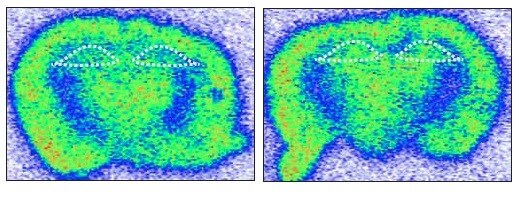It’s been 47 years since Tom Newton served in Vietnam, but the 66-year-old Mount Prospect resident is still feeling the impact of the experience.
“I get depressed easily – I don’t want to go out lately,” he said.
Newton was diagnosed with post-traumatic stress disorder 12 years ago. He sees a psychiatrist routinely, and was recently told to join an anger management group and seek group therapy.
“I have discussed everything 100 times now,” he said of his treatment. “I don’t know what else to say.”
For patients such as Newton, whose conditions stem from older traumatic memories, treatment can prove more difficult than for those with newer memories, said John Mundt, a psychologist at the Jesse Brown VA Medical Center in Chicago. But psychotherapy and a gene-activation drug may be an effective treatment combination in combating PTSD for some, a pre-clinical study published this month in the journal Cell suggested.
Researchers from the Massachusetts Institute of Technology found that when mice were treated with a histone deacetylase, known as HDAC2, inhibitor – a chemical that enhances the genes responsible for memory formation – they appeared to overcome fear associated with a traumatic event.
“There was a significant and quite permanent extinction of the fear memory,” said lead author Li-Huei Tsai, a neuroscience professor and director of the PiCower Center for Learning and Memory at MIT.
The researchers hoped to discover a biological reason for why distant memories are more resistant to exposure therapy, a common treatment for PTSD patients involving confrontation of traumatic memories that’s designed to overcome fear of the event. Nearly 5.2 million adult Americans suffer with a severe anxiety disorder, reports the National Center for PTSD. But almost 29 percent of those suffering from it are unsuccessfully treated, the study noted.
“More remote traumatic events can be difficult to address because the behaviors people develop to cope with them have been more engrained,” Mundt said. “There’s a lot of energy that gets puts into not remembering certain things – not feeling certain things.”
To confirm that older memories are harder to treat, the researchers instilled fear in mice by continuously placing them in a chamber and pairing a tone with a light foot shock, causing them to freeze upon hearing the shock. Using an “extinction protocol,” a conditioning similar to exposure therapy, the researchers then placed the mice back in the chamber with the tone but without the shock, so the mice would disassociate the two.
When half of the mice reentered the chamber a day later, they showed no fear. But when the remainder were placed in the chamber 30 days later, those animals continued to freeze.
“This showed that new memories such as one day old memories can be extinguished with this re-exposure extinction training,” Tsai said. “But if the memory is old, such as 30-day-old memories as in this case, they are harder to maneuver.”
To discover the neurological basis for this, the researchers conducted the experiments again and examined the brains – specifically the hippocampus, where memories are formed and stored – of the two groups of mice. In the mice exposed a day later, scans revealed an increase in the activation of memory-related genes, caused by an inactivation of HDAC2. But in the mice with the 30-day-old memories, there was no spike.
Based on these findings, researchers injected an HDAC2 inhibitor into the mice prior to re-exposure 30 days later – but this time, the mice did not freeze in fear.
Tsai is not licensed to conduct clinical trials on humans, but hopes that others will take over.
“Based on our study, I would be encouraged, I would be optimistic for those who do clinical trials for chemical disorders or PTSD to think about designing trials with HDAC inhibitors,” she said.
Perhaps such a trial would yield positive results helpful for those such as Newton, who continue to feel the impact of distant events.
“I won’t go downtown to Chicago – I don’t like crowds,” he said. “I still lock everything up six times before I go to bed. It’s just things I’ve learned to live with after the last 45, 46 years now.”



This seems like a very promising area of research. It makes sense that more recent traumatic events are easily treated compared to those from long ago and the ingrained behaviors that go along with them. As with any mental health disorder, such as social anxiety or depression, the longer a person has suffered, the more time it will take to reverse the patterns that have been learned. Not impossible though, and with the potential for this gene therapy, maybe completely reversible.